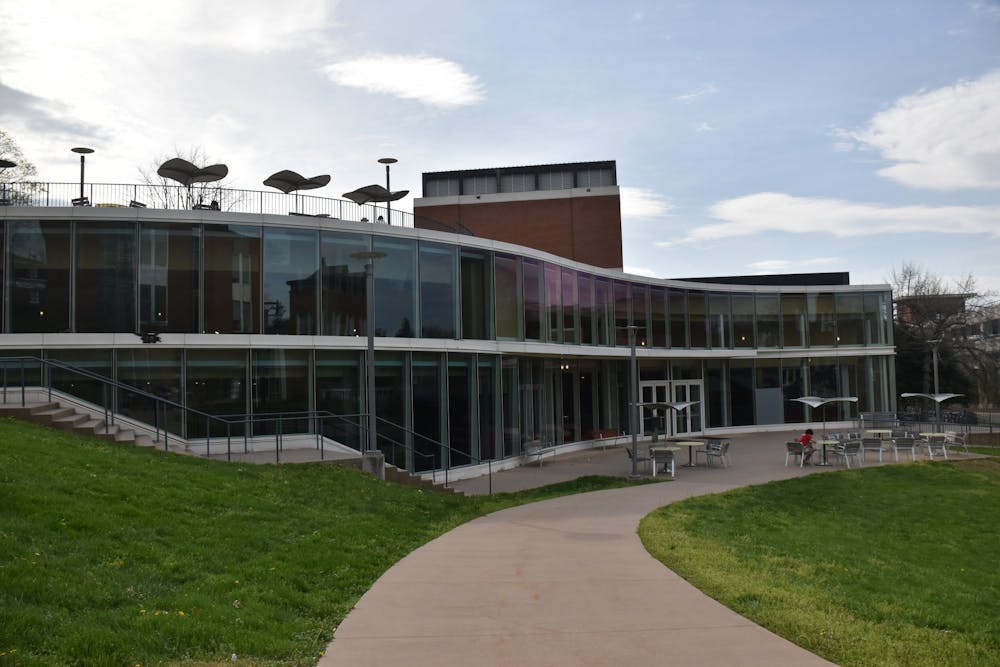Trees are blossoming, birds are chirping and sunny days are more frequent, enlivening the Lawn after a long winter — spring has finally graced Grounds with its presence. While upcoming final exams and summer break plans occupy the minds of students, enrollment appointments for fall semester took place last week. With enrollment in up to 15 credits open until August 2 and open enrollment afterwards, the pressure to find courses of interest which fill gaps in a nearly ideal schedule, especially before rising first years start enrolling, looms large.
Whether searching high and low for an enjoyable course which balances out a demanding schedule or wanting to try something new altogether, classes exploring the arts across their many iterations comprise the perfect addition to any potential course load. Spanning academic departments and disciplines, the following courses are taught by renowned University faculty and cover everything from modern art to science fiction, showing only a sample of what the College of Arts and Sciences has to offer this fall.
ARTH 2451 — Modern Art, 1900-1945
Typically offered once each academic year, ARTH 2451 leads students through an exploration of the major artistic movements, mostly concentrated in Europe and the U.S., during the first half of the 20th century. The topics of study include both cubism, which is characterized by artists incorporating different views of subjects into the same picture, and futurism — a movement in Italian art which sought to encapsulate the perceived progress and energy of the modern world. These and other artistic movements over the 45-year period are discussed and visualized through mediums such as painting, photography, sculpture and functional works of art like furniture.
Art History Prof. Elizabeth Turner is set to teach the class again this fall, after teaching it last fall as well. Among her many artistic accomplishments, Turner recently co-curated an exhibition focused on American modernist painter Jacob Lawrence at the Metropolitan Museum of Art in New York City, an experience which permeates the course’s examination of modernist trends in American art. Discussion sections, likely headed by graduate students in the College’s Department of Art, break the rather large lecture into smaller groups conducive to piecing together the place of art within its respective movements and history generally.
DRAM 2020 — Acting I
With multiple sections offered every semester, Acting I is a popular course within the Drama department. There are no prerequisites for enrolling in the class, giving students across academic backgrounds the opportunity to try out acting regardless of experience level. Acting I is a highly interactive course — students participate in games focused on developing techniques, such as incorporating emotion into their reading of a monologue or script, and getting to know other students in their section of the course.
“You got to know someone else from the class really well in the partner scenes,” second-year College student Anna Yankoski said. “But then the monologues were just really fun to work with and create a full character to embody.”
Graded monologues and partner activities assigned quarterly assess students’ progress in the course, allowing them to put the skills learned in class into practice by memorizing and performing a piece alone or with others. The small seminar format of Acting I lends itself to creating a tight-knit community, which fosters individual progress in areas such as public speaking. Each section has 10 open seats and is primarily taught by an M.F.A. student paired with Colleen Kelly, University drama professor and director of the M.F.A. Acting Program.
ENCW 2560 — Introduction to Fiction Writing - Themed
This Literary Science Fiction course, offered every fall semester in recent memory, is a stronghold within the creative writing program housed under the College’s English department. Students once again have the opportunity to delve into the subgenre of science fiction this fall as both readers and writers in this workshop-styled class. Under the guidance of University professor James Livingood — the author of several short stories himself — students write and revise their own short story or chapter of a science fiction novel.
Students develop the craft of writing science fiction through reading fiction and science fiction works assigned in the course. Reading such works undoubtedly attunes students to the literary strategies and techniques employed by authors who explore the meaning of humanity alongside tensions between the present and future. In doing so, students leave the class as more insightful readers and writers not only of science fiction, but of fiction generally — a result useful to students regardless of their specific field of study.
ENGL 3271 — Shakespeare: Histories and Comedies
Courses focused on the literary career and works of Shakespeare are staples within the English department, and ENGL 3271 is no exception. Students explore the first half of Shakespeare’s playwriting career, during which he primarily wrote plays falling within the history and comedy theatrical genres, in-depth under the tutelage of English Prof. Katharine Maus. Maus has not only served as the James Branch Cabell Professor of English at the University since 2003, but she also recently co-edited the latest edition of “The Norton Shakespeare.”
“Professor Maus is really interesting,” second-year College student Sofia Heartney said. “All the lectures are super engaging and give a lot of important background context for the plays, which makes them much more interesting to read.”
Students enrolled in the class closely engage with Shakespeare’s plays in weekly discussion sections led by graduate students in the English department. Furthermore, writing essays in response to the provided prompts allows students to develop and practice close reading skills in order to better understand the literary choices Shakespeare makes in his plays and their theatrical implications. This course — offered most fall semesters — is both counterpart and prelude to “Shakespeare: Tragedies and Romances,” which Maus typically teaches every spring semester.







